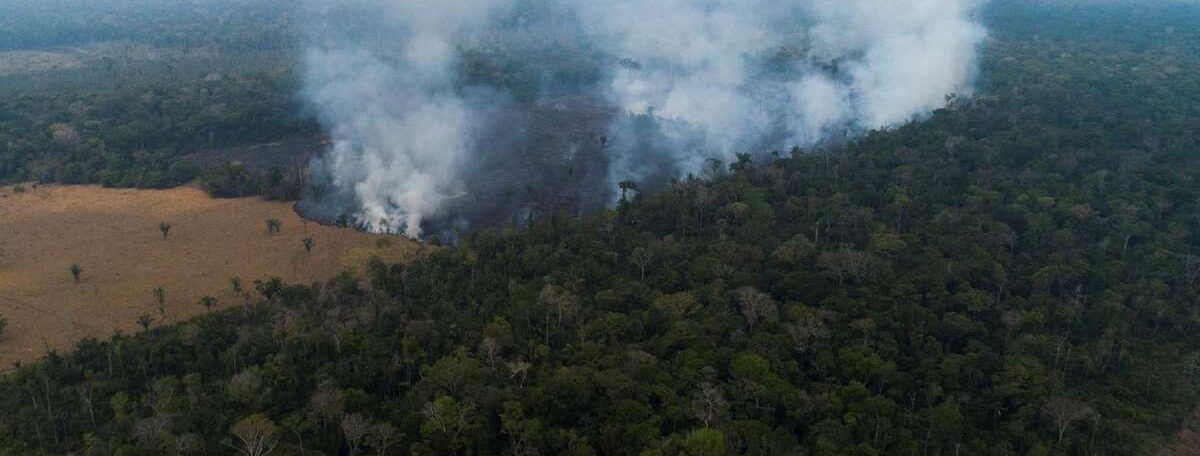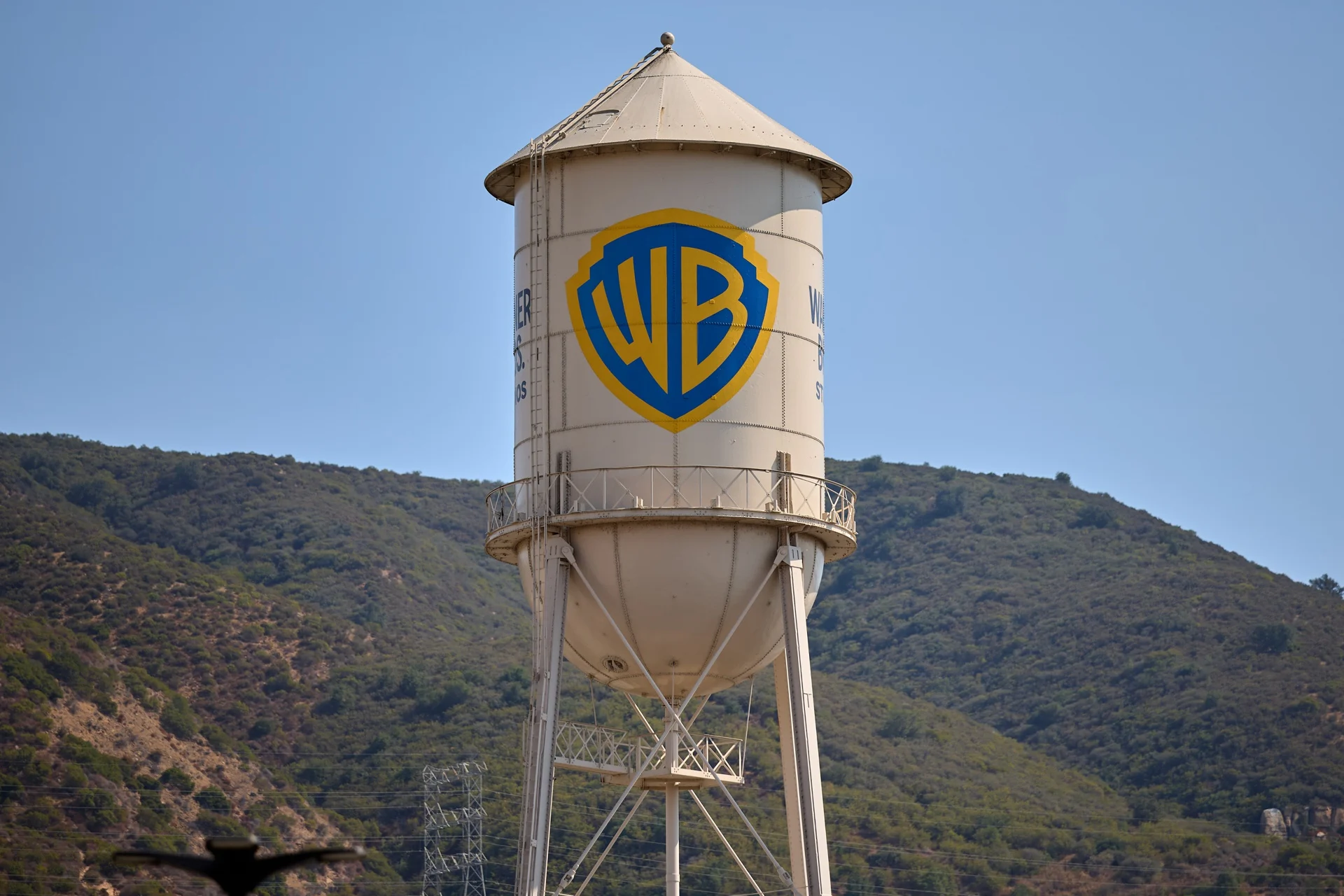International
Brazil emissions rose in 2020 despite pandemic: study

AFP
Brazil’s greenhouse gas emissions rose by 9.5 percent last year, mostly because of deforestation, a report said Thursday, making it one of the only major economies not to cut pollution as the pandemic hit.
Even as worldwide emissions fell seven percent in 2020 — a silver lining of Covid-19 stay-at-home measures that paralyzed the global economy — Brazil released the equivalent of 2.16 billion tonnes of carbon dioxide, its highest since 2006, said the report from the Climate Observatory, a coalition of environmental groups.
“The increase in deforestation in Brazil, particularly in the Amazon rainforest, put the country at odds with the trend seen in the rest of the planet,” it said.
Deforestation in Brazil has surged since far-right President Jair Bolsonaro took office in 2019 with a push to open protected lands to agribusiness and mining.
Like most countries, Brazil, Latin America’s largest economy, reduced pollution from the energy sector last year as the pandemic brought industry and aviation to a standstill.
Emissions there fell by 4.6 percent, to levels not seen since 2011.
But that gain was more than offset by increases of 2.5 percent for the agricultural sector and 23.7 percent for “land use changes,” which includes the cutting and burning of trees.
Driven largely by farming and cattle ranching, such land clearing releases carbon into the atmosphere — a major problem for the world’s biggest producer and exporter of soy and beef.
Under Bolsonaro, the Brazilian Amazon has lost more than 10,000 square kilometers (3,860 square miles) a year of forest cover, an area the size of Lebanon, up from 6,500 square kilometers a year over the previous decade.
Climate Observatory executive secretary Marcio Astrini blamed Bolsonaro’s “anti-policies” on the environment for the emissions increase.
“Brazil managed the feat of being perhaps the only major carbon emitter to pollute more in the first year of the pandemic,” he said in a statement.
“This is one more blow to the international image of the country, which arrives completely discredited to the COP26” — the upcoming UN climate summit.
Opening Sunday in Glasgow, it is the biggest climate conference since the 2015 Paris talks produced a landmark accord on curbing global warming, and is seen as crucial for setting global emissions-cutting targets.
International
New York Announces First 2,000 Seats in Universal 2-K Program

The Governor of New York, Kathy Hochul, and New York City Mayor Zohran Mamdani took another step today in their universal early education agenda by announcing the communities that will have access to the first 2,000 seats in the new 2-K program this fall — an initiative backed by a $73 million investment.
The funding is part of the $1.2 billion package previously unveiled by Hochul to strengthen child care and early childhood education across the city, one of the key campaign promises of the now Social Democratic mayor.
At the time of the announcement, the governor also outlined additional funds to reinforce the existing 3-K early education infrastructure, a program launched under former Mayor Bill de Blasio (2014–2021).
When the 2-K initiative was introduced in January, Mayor Mamdani explained that its first phase would offer 2,000 seats, with the goal of eventually expanding into a universal program — a commitment supported by the governor.
State investment in child care and preschool services is expected to increase to $4.5 billion by fiscal year 2027.
Among the first communities set to benefit from the 2,000 seats are Upper Manhattan and Inwood — areas with large Dominican populations — as well as Fordham and Kingsbridge in the Bronx, a borough with a Latino majority.
In East Brooklyn, Canarsie, Brownsville, and Ocean Hill will also be included. Meanwhile, Ozone Park and the Rockaways are among the neighborhoods that will see the rollout of the 2-K program.
International
Warner Bros. Developing First ‘Game of Thrones’ Movie With ‘Andor’ Writer

Warner Bros. is developing the first feature film based on the hit saga Game of Thrones, with Beau Willimon — screenwriter of Andor — attached to direct, according to a report published Tuesday by Page Six.
The project, currently in early development, will focus on the conquest of King Aegon I Targaryen. A separate television adaptation centered on the same historical storyline within the franchise is also in early stages at HBO.
However, the outlet noted that it remains unclear whether the film will move forward following the recent acquisition of Warner Bros. Discovery by Paramount Skydance.
If the merger is finalized, the movie could potentially be shelved, although that scenario appears unlikely given that the Game of Thrones franchise remains one of HBO’s most valuable and beloved properties.
After six seasons adapting the work of George R. R. Martin, the platform expanded the universe with House of the Dragon, a prequel series set 200 years before the events of Game of Thrones that explores the history of House Targaryen.
International
Spain’s Prime Minister to Address Nation Amid Trump’s Trade Threats

The Prime Minister of Spain, Pedro Sánchez, will deliver an institutional address this Wednesday at the Moncloa Palace regarding the escalating situation in the Middle East and recent threats directed at Spain by U.S. President Donald Trump.
The Spanish government announced that Sánchez will make a statement at 9:00 a.m. local time to outline his position on the latest developments following the U.S. and Israeli attacks on Iran.
Sánchez is expected to reiterate Spain’s reasons for opposing the use of U.S. military bases on Spanish soil in the operation—an action he has already described as being outside international law—while also expressing criticism of the Iranian regime.
Government sources indicated that the address had been planned prior to Trump’s remarks criticizing Spain’s stance. However, following those comments, Sánchez is now also expected to respond directly to the U.S. president’s statements.
Trump has threatened to “cut all trade with Spain” and said he wants “nothing to do” with the country after Madrid refused to authorize the use of the Morón and Rota military bases in southern Spain for operations against Tehran.
The U.S. president also labeled Spain “a terrible NATO partner” and warned that “no one” would tell him he could not use the facilities.
In response, the Spanish government stated that Spain fulfills its commitments to NATO and European defense. It also warned Trump that any review of bilateral trade relations must respect international law and the agreements in place between the European Union and the United States.
-

 International2 days ago
International2 days agoIran Reports 201 Dead, 747 Injured After U.S. and Israeli Strikes
-

 International2 days ago
International2 days agoPope Leo XIV Urges End to ‘Spiral of Violence’ in Middle East
-

 International5 days ago
International5 days agoCocaine Production Surges 34% in 2023 as Market Expands into Africa and Asia
-

 International4 days ago
International4 days agoTrump Floats “Friendly Takeover” of Cuba Amid Rising Tensions
-

 International22 hours ago
International22 hours agoBrazil’s Supreme Court Rejects Bolsonaro’s Bid for House Arrest
-

 International3 days ago
International3 days agoSecurity Council to Hold Emergency Meeting on Middle East Crisis
-

 Sin categoría3 days ago
Sin categoría3 days agoTrump: ‘We Think It’s True’ Amid Claims Iran’s Supreme Leader Was Killed
-

 International4 days ago
International4 days agoArgentina’s Senate Reviews Milei-Backed Labor Overhaul
-

 International5 days ago
International5 days agoFederal Judge Blocks Trump Policy Allowing Deportations to Third Countries
-

 International22 hours ago
International22 hours agoAnti-ICE Billboard Campaign Targets Immigration Spending in 31 U.S. Cities
-

 International5 days ago
International5 days agoClinton Accuses Republican Committee of Using Epstein Case to Shield Trump
-

 International22 hours ago
International22 hours agoTrump Warns of ‘Major Wave’ of Attacks as Iran Conflict Escalates
-

 International22 hours ago
International22 hours agoMexico Calls for Immediate Probe After National Dies in ICE Custody
-

 Central America22 hours ago
Central America22 hours agoPanama Canal Monitoring Trade as Middle East Conflict Disrupts Shipping
-

 International21 hours ago
International21 hours agoBolivia Orders Three Investigations Into Deadly Military Plane Crash
-

 International13 minutes ago
International13 minutes agoSpain’s Prime Minister to Address Nation Amid Trump’s Trade Threats
-

 Central America6 minutes ago
Central America6 minutes agoGuatemala’s Attorney General Fails in Bid for Top Court Seat Amid Corruption Allegations
-

 International4 minutes ago
International4 minutes agoWarner Bros. Developing First ‘Game of Thrones’ Movie With ‘Andor’ Writer





























